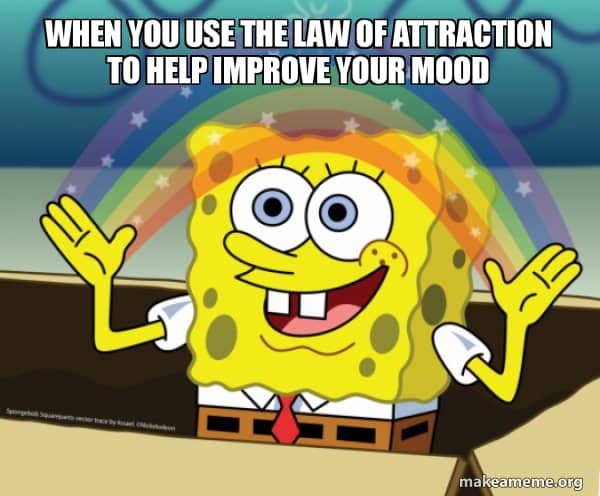What Science Says About the Law of Attraction

Ever wondered if your thoughts could actually shape your reality? Welcome to the wild world of the Law of Attraction.
In this guide, you’ll discover:
- What the Law of Attraction really means
- The scientific evidence for (and against) it
- Why it’s so darn popular
- How to use it without losing your mind
Let’s dive in and separate fact from fiction!
What is the Law of Attraction? (And Why Should You Care?)
The Law of Attraction is like a cosmic vending machine. Put in positive thoughts, get positive outcomes. Sounds sweet, right?
Here’s the deal:
- Like Attracts Like: Your thoughts are magnets for experiences
- Visualization: Picture it, and it’ll happen (supposedly)
- Positive Vibes: Keep it upbeat, and life will follow suit
But is it all just new-age nonsense, or is there something to it?
The Science For and Against the Law of Attraction
Let’s break it down:
The “For” Column:
1. Positive Thinking Pays Off
Studies show happy people tend to be more successful
A 2005 review found that people with a positive affect tend to experience higher levels of happiness and success.
2. Visualization Works
Athletes use it to boost performance (and it works!)
A 2010 review suggested that visualizing desires can increase the likelihood of achieving them
3. Quantum Physics… Maybe?
Some say our thoughts influence reality at a quantum level
The idea is that thoughts and feelings carry vibrations that can influence reality. While intriguing, these claims often lack rigorous scientific validation and are considered speculative
If you’re into the law of attraction you’re probably also into improving health and wellness. If so check out my article How to Enjoy the 5 Components of Health and Wellness Daily
The “Against” Column:
1. Where’s the Proof?
The primary critique of the law of attraction is the absence of empirical scientific evidence.
It is widely regarded as pseudoscience, with no basis in controlled scientific studies.
2. Oversimplification
Life’s complex, folks. It’s not just about your thoughts
Critics argue that the LoA oversimplifies complex life situations and attributes outcomes solely to individual thoughts, ignoring external factors and randomness.
A review by Baumeister et al. (2007) found that while positive thinking can influence one's outlook and behavior, it does not guarantee specific outcomes. The study emphasized the importance of effort, skill, and external factors in achieving success
3. Toxic Positivity
Suppressing negative emotions? Not cool, and potentially harmful
The emphasis on relentless positivity can lead to emotional repression and toxic positivity.
Also, the belief in the LoA can encourage risk-taking behaviors without consideration of consequences, leading to financial and personal problems.
Why the Law of Attraction is So Popular

Despite the skepticism, the LoA is everywhere. Why?
- It’s Empowering: Who doesn’t want to control their destiny?
- Celebrity Endorsements: When Oprah talks, people listen
- Easy to Understand: No PhD required to grasp the concept
But remember: Popularity doesn’t equal scientific validity.
How to Use the Law of Attraction

Want to give it a shot? Here’s how to do it smartly:
- Keep It Real: Use positive thinking, but don’t ignore reality
- Balance is Key: Acknowledge negative emotions, don’t suppress them
- Action Beats Wishful Thinking: Visualize, then put in the work
- Stay Grounded: Remember, external factors still exist
It’s about mindset shift, not magical thinking.
The Bottom Line
The Law of Attraction isn’t a scientific slam dunk, but it’s not total bunk either.
Here’s the takeaway:
- Positive thinking has benefits
- Visualization can be a powerful tool
- But it’s not a substitute for action and reality




